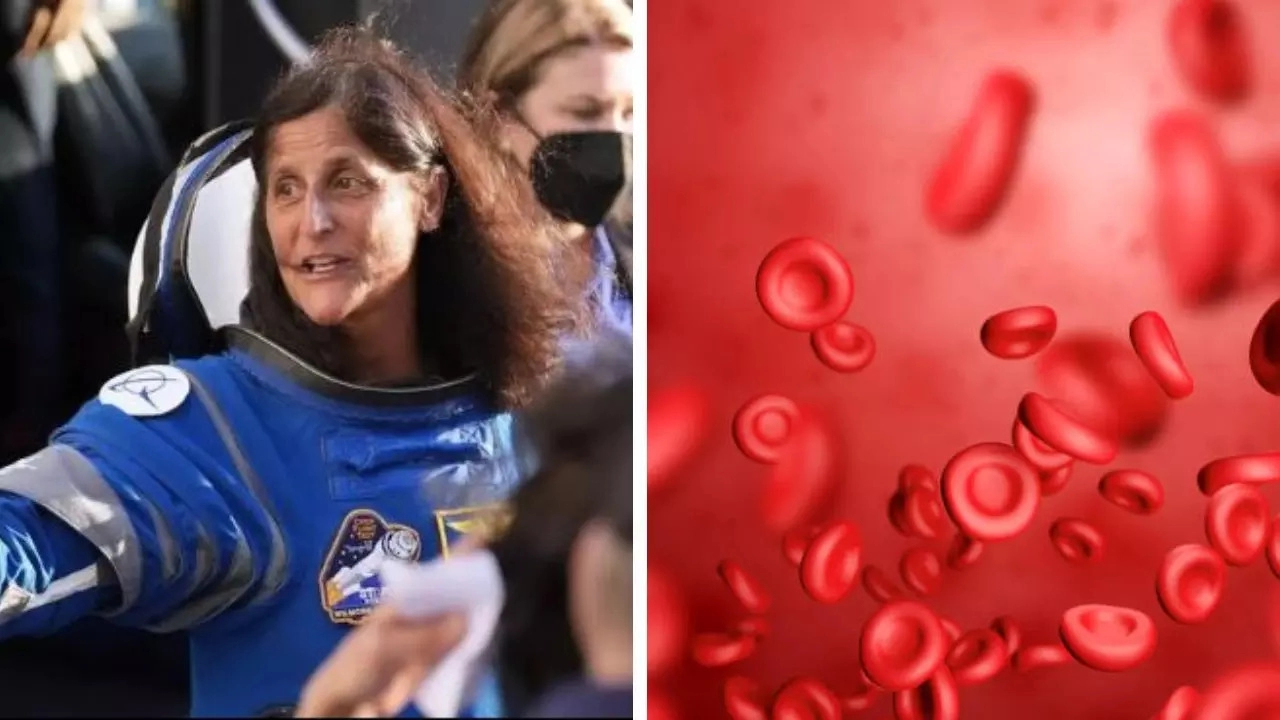Ashima Sharda Mahindra • 27 Aug 2024
What Is Space Anemia, A Condition That Could Affect Astronaut Sunita Williams?

Within the first 10 days in space, there will be a massive decrease in the red blood cell count which will return to near-earthly values slowly
Astronauts Sunita Williams and Butch Wilmore, arriving at the International Space Station, might face several health issues due to their prolonged stay, which is not expected to end until February 2025. Among various other health issues they face is space anemia.
What is space anemia?
According to experts, the term space anemia refers to a condition where astronauts experience a reduction in red blood cells when they are up in space. It usually occurs as the body destroys red blood cells at a faster rate than it produces them when exposed to the microgravity environment of space.
Doctors say in space anemia, the human body destroys red blood cells faster than on Earth - increasing from two million per second to three million per second. During six-month space missions, studies reveal that red blood cells lessen by 54 per cent more than earlier.
Studies say space missions degrade hemoglobin levels
According to a research paper, Hemolysis Contributes to Anemia During Long-Duration Space Flight, published in the Nature Medicine journal in 2022, space anemia in astronauts causes increased levels of products of hemoglobin degradation, carbon monoxide in alveolar air, and iron in serum.
This study was conducted on 14 astronauts throughout their six-month missions onboard the International Space Station, indicating that extended exposure to microgravity in space leads to “increased levels of hemolysis, reticulocytosis, and hemoglobin. The study highlights that within the first ten days in space, there will be a 10-12 per cent decrease in the red blood cell count which will return to near-earthly values slowly.
Space anemia severely affects functions like astronaut orthostatism, and exercise tolerance, and causes tremendous fatigue and tiredness.
What happens when astronauts come back?
Once they are back, experts say space anemia will have a different effect on astronauts - including, a further increase in the destruction of red blood cells. Other effects of long-term exposure to microgravity include:
- Loss of bone density
- Development of vision-related issues
- Body imbalance
- Reduced mental health
- Reduced heart function
Why does anemia happen in space?
According to experts, it was earlier believed that the loss of red blood cells in space happened due to fluid shifts that occurred when astronauts arrived in space, causing a temporary drop in blood volume. However, investigations have revealed that red blood cell destruction continues throughout the space mission, not just at the beginning
Experts believe that hemolysis would continue to affect astronauts even after they return to Earth, and so to keep themselves fit and healthy, they would need extra nutrition and lots of rest.
Get Latest News Live on Times Now along with Breaking News and Top Headlines from Health and around the world.